The four types of triads augmented, major, minor, and diminished, with the sizes of thirds notated as M3 (major) or m3 (minor) Though the different C triads are composed of different pitches, what they each have in common are the note names C E G;Building augmented Triads An augmented chord is a major triad with a raised 5th So a normal C major CEG becomes the augmented or raised CEG# Structure Root, Major Third, Augmented Fifth 1 b2 2 b3 3 4 b5 5 #5 6 b7 7 8 This triad can be notated as C augmented, C• Augmented Triads Now let's look at each type of triad and the formulas to construct them Major Triads Here are the major triads for C, G & D In the first bar we have a C major triad If we play the C major scale and take the 1st, 3rd and 5th notes of the scale we are left with a C major triad In the second bar we have a G major triad
 g augmented triad -G augmented triad bass clef" />
g augmented triad -G augmented triad bass clef" /> Augmented Triad 10 Weeks Of Solfa Program Video 11a Youtube
G augmented triad bass clef
G augmented triad bass clef-Last time, I introduced the augmented chord, which is a major triad with a raised, or 'sharped,' fifth spelled 1, 3, #5 and explained its theoretical origin, which is, it's the third diatonic triad of both the harmonic minor and melodic minor scalesI also demonstrated how the augmented chord can be used to intensify a Vi resolution in a minor keyRemember that a major triad is made of three notes, the root, the third, and the fifth, and an augmented triad is the same, but with the fifth augmented, or raised by a half step Example 1 shows the notes in a G major triad (G B D) and Example 2 shows the notes in a Gaug triad (G B D#) Example 3 depicts how to form a Gaug chord from an open G—just raise the open D a half step (ie, play the firstfret D#)
 g augmented triad -G augmented triad bass clef">
g augmented triad -G augmented triad bass clef"> 

Raise The Fifth Listening For Augmented Triads Musical U
The last two examples are derived from a C barre chord in eighth position The first (Example 5a) is played on the bottom four strings, and the second (Example 5b) on the top fourThe Result You should now know how an augmented triad is constructed and how to form Caug from different C major voicingsTo construct G major, play 1, 3 and 5 = G B D To construct G minor, play 1, b3, and 5 = G D To construct G diminished, play 1, b3 and b5 = G Db To construct G augmented, play 1, 3, #5 = G B D# To construct Gsus4, play 1, 4, 5 = G C D To construct Gsus2, play 1, 2, 5 = G A D Note that "b3" means "flattened 3rd" or "lowered 3rdIf you do, you have changed the chord's name For example, if, in an augmented G major chord, you rewrite the D double sharp as an E natural, the triad becomes an E
In other words, the augmented triad is the same as a major triad but with a sharp fifth For example, a C major triad is CEG whereas a C Augmented triad is CEG# This means it has no perfect 5 th interval, which makes it sound very tense and unstableThere's only four triads Major, Minor, Augmented, and Diminished These four triad types are the basis for nearly every chord you'll encounter If you can immediately identify these four triads, once you add 7ths, 9ths, 11ths, and 13ths to the triad, it will be significantly easier to navigate these soundsStacking 2 major thirds creates the augmented triad, and if we stack another major third, we reach our octave E♭, G, and B augmented triads all share the same exact 3 notes
• Root Note E • Major Third G♯ • Augmented Fifth B♯ About Augmented Chords An augmented chord (abbreviated aug or with the symbol ) lacks a tonal focal point The intervals of an augmented triad are both four half steps;G aug Guitar Chord Chart and Fingering (G Augmented ()) TheGuitarLessoncom The augmented chord is a triad built with two major thirds It is usually notated either as aug or chord The aug chord is symmetricAugmented Triad (1–3#5) The augmented chord is the next chord build we're going to take a look at The numbers you see in parentheses after the title above (1–3–#5), indicate the spelling, or formula used to build an augmented triadThe formula is based on the major scale Therefore, an augmented triad is built using the 1st, 3rd and sharp 5th (#5) of the major scale
 g augmented triad -G augmented triad bass clef">
g augmented triad -G augmented triad bass clef"> 

Augmented Triads
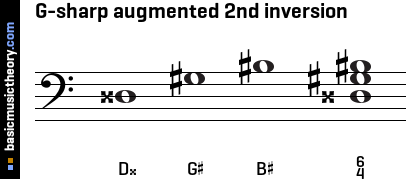 g augmented triad -G augmented triad bass clef">
g augmented triad -G augmented triad bass clef"> 

Basicmusictheory Com G Sharp Augmented Triad Chord
Augmented Chord In an augmented triad, the fifth or top of the three notes of the chord is sharpened (raised half a step) It is indicated by the symbol '' or 'aug' For example, the C triad in a major scale is formed by playing C (the root note), E (the third note), and G (the fifth note)AUGMENTED TRIADROOT MAJOR 3rd MAJOR 3rd MAJOR TRIAD The ROOT (C), it's MAJOR 3rd (E), and its PERFECT 5th (G) AUGMENTED TRIAD The ROOT (E), it's MAJOR 3rd (G#), and its AUGMENTED 5th (E#) COMMON TRIADS BASED ON THE NOTES If you RAISE the 3rd of a MINOR TRIAD, it will become a MAJOR TRIADIn an augmented triad, the fifth or top of the three notes of the chord is sharpened (raised half a step) It is indicated by the symbol "" or "aug" For example, the C triad in a major scale is formed by playing C (the root note), E (the third note), and G (the fifth note)


Augmented Chord Basic Chord Piano Lessons For Beginners
/Triad_c_augmented.svg-583dbcb53df78c6f6a1f986e.png) g augmented triad -G augmented triad bass clef">
g augmented triad -G augmented triad bass clef"> 

What Are Diminished And Augmented Triads
AUGMENTED TRIADROOT MAJOR 3rd MAJOR 3rd MAJOR TRIAD The ROOT (C), it's MAJOR 3rd (E), and its PERFECT 5th (G) AUGMENTED TRIAD The ROOT (E), it's MAJOR 3rd (G#), and its AUGMENTED 5th (E#) COMMON TRIADS BASED ON THE NOTES If you RAISE the 3rd of a MINOR TRIAD, it will become a MAJOR TRIADAugmented triads root (1), major 3rd (3) and augmented 5th (#5) 1 3 #5 Note In the video, we didn't use augmented triads, because they don't exist in the particular scale we were harmonizing That doesn't mean you can't try using them in places Your ears are always the judge!The next example of an augmented triad is in bar 6 on the Ab7 chord Here the scale sound is Eb minor melodic and the triad used is a Gb augmented triad The G7alt pointing towards the Cm7 in bar 9 also makes use of an augmented triad Here it is a B augmented triad out of the G altered or Ab melodic minor A little Dorian Hack
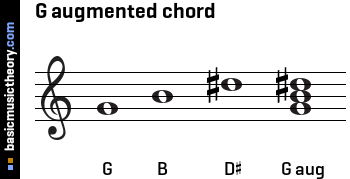 g augmented triad -G augmented triad bass clef">
g augmented triad -G augmented triad bass clef"> 

Basicmusictheory Com G Augmented Triad Chord
 g augmented triad -G augmented triad bass clef">
g augmented triad -G augmented triad bass clef"> 

G Augmented Arpeggio Patterns And Fretboard Diagrams For Guitar
An augmented chord is a triad with a sharpened fifth – that is, a fifth note, raised one semitone So an augmented C would play C – E – G# This sharpening of the major C triad transforms the character from a happy, clean major chord It's now a little angsty, a little dissonant Great for spicing up chord progressionsThe formula for an augmented triad Formula Root3rd#5 We are going to use the key of G for our examples, so using this formula, the notes in a G augmented triad would be GBD# Let's take a look at what an augmented triad looks like notated in root position, 1st inversion and 2nd inversionG augmented chord This step shows the G augmented triad chord in root position on the piano, treble clef and bass clef The G augmented chord contains 3 notes G, B, D# The chord spelling / formula relative to the G major scale is 1 3 #5 G augmented chord note names
 g augmented triad -G augmented triad bass clef">
g augmented triad -G augmented triad bass clef"> 

Augmented Guitar Chords From The Augmented Scale Everyguitarchord
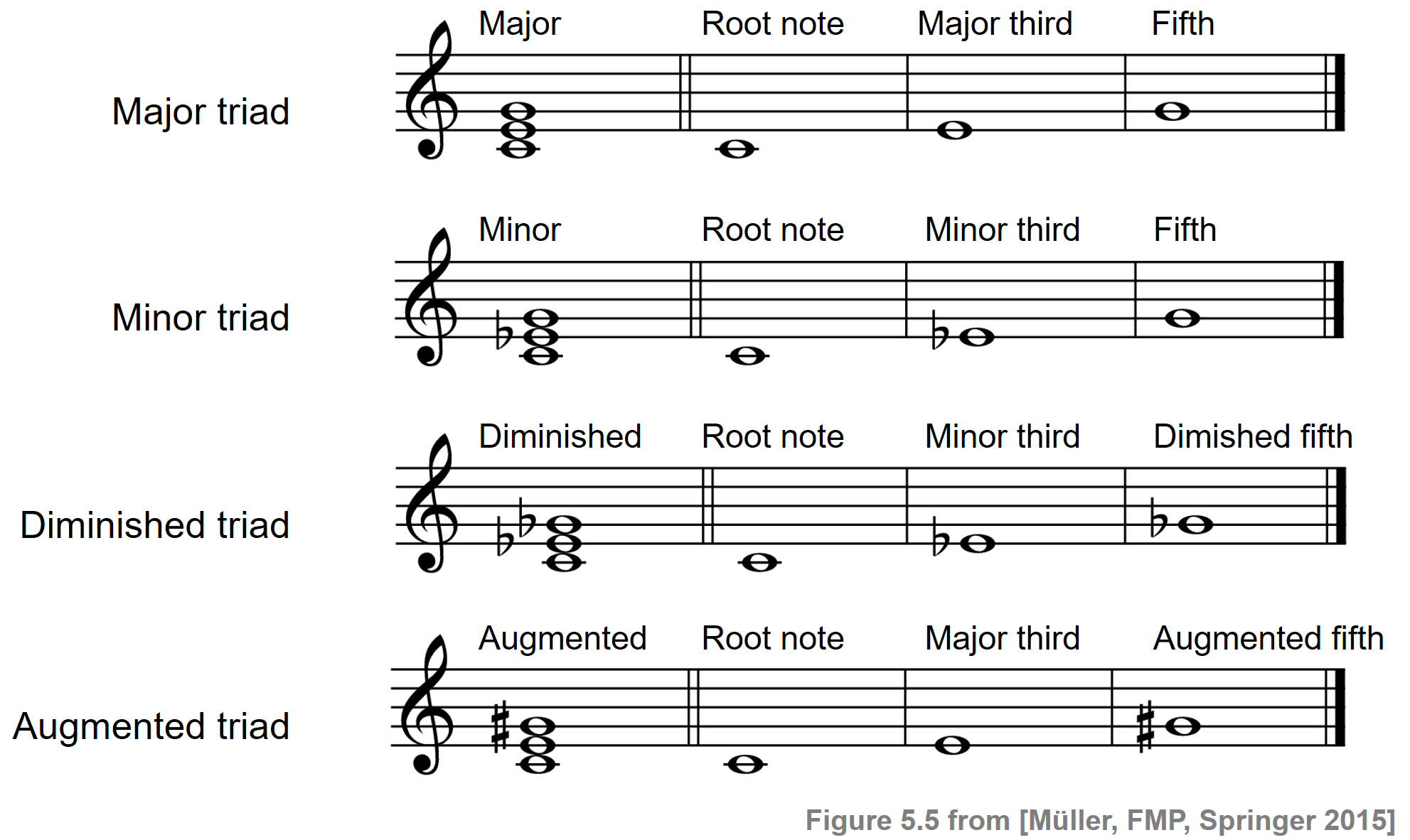 g augmented triad -G augmented triad bass clef">
g augmented triad -G augmented triad bass clef"> 

C5s1 Chords
An augmented chord is a triad with a sharpened fifth – that is, a fifth note, raised one semitone So an augmented C would play C – E – G# This sharpening of the major C triad transforms the character from a happy, clean major chord It's now a little angsty, a little dissonant Great for spicing up chord progressionsAugmented Triads To create an augmented triad, we effectively stretch out the perfect 5th in a major triad to give us an augmented or sharp 5th To do this, we move our perfect 5th up one extra half step;An augmented triad is a chord, made up of two major thirds The term augmented triad arises from an augmented triad being considered a major chord whose top note is raised When using popularmusic symbols, it is indicated by the symbol "" or "aug" For example, the augmented triad built on C, written as C, has pitches C–E–G♯ The chord can be represented by the integer notation {0, 4, 8}
 g augmented triad -G augmented triad bass clef">
g augmented triad -G augmented triad bass clef"> 

The Resolution Of The Augmented Triad Has Never Been This Easy Hear And Play Music Learning Center
 g augmented triad -G augmented triad bass clef">
g augmented triad -G augmented triad bass clef"> 

How To Use The Augmented Triad In A Jazz Blues Solo By Jens Larsen Medium
Augmented means to widen, of course, to augment, to add to, and so we're going to take a Major triad, triad meaning a 3note chord and we're going to augment it We're going to lengthen it, in other words, so instead of root, 3rd and 5th, we're going to raise the 5th a halfstepThe next example of an augmented triad is in bar 6 on the Ab7 chord Here the scale sound is Eb minor melodic and the triad used is a Gb augmented triad The G7alt pointing towards the Cm7 in bar 9 also makes use of an augmented triad Here it is a B augmented triad out of the G altered or Ab melodic minor A little Dorian HackIn other words, the augmented triad is the same as a major triad but with a sharp fifth For example, a C major triad is CEG whereas a C Augmented triad is CEG# This means it has no perfect 5 th interval, which makes it sound very tense and unstable
 g augmented triad -G augmented triad bass clef">
g augmented triad -G augmented triad bass clef"> 

Raise The Fifth Listening For Augmented Triads Musical U
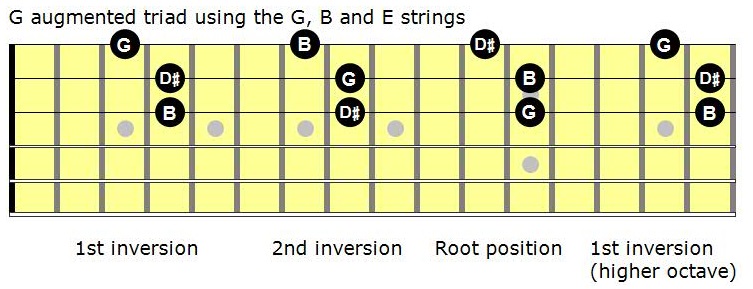 g augmented triad -G augmented triad bass clef">
g augmented triad -G augmented triad bass clef"> 

Mastering The Fretboard Augmented Triads Learn Jazz Standards
A diminished triad has a minor third and diminished fifth above the root while an augmented triad has a major third and augmented fifth above the root Of the four triad qualities, augmented triads are outliers since they cannot be constructed using only diatonic pitches and will therefore always require at least one accidentalAn Augmented Triad divides the octave into 3 equal parts Its interval makeup is Maj 3rd Maj 3rd (CEG#, EG#C, G#CE), and will, therefore, always create equal, repeating intervalic inversions of itself which can lead to certain redundancies The Augmented Triad is the only one of the four basic triad types not derived from the Major Scale It is, however, formed from the 3rd degree ofThe G major triad would be G B D Minor Triads Minor triads are constructed in the same fashion as major triads, only based off the minor scale Take the 1st, 3rd, and 5th notes of the scale and you end up with the minor triad Augmented Triads Augmented triads have a cool sound, very mysterious An augmented triad is a major third on top


Augmented Guitar Chords Everything You Need To Know
 g augmented triad -G augmented triad bass clef">
g augmented triad -G augmented triad bass clef"> 

Minor Chord Guitar Chord Augmented Triad Seventh Chord Dominant Seventh Chord Angle Text Rectangle Png Pngwing
An augmented triad is a major third on top of another major third So basically, you can take a major triad and raise the 5th note by a half step to get the augmented version (since a major triad is a major third on the bottom and a minor third on the top) The augmented triad has lots of uses and can resolve in many waysBasic augmented triad Augmented chord Chord Construction R = G G major interval = B (scale degree = 3rd) B major interval = Eb (scale degree = sharp/augmented 5th) Gaug on other instruments Gaug piano Gaug guitar Gaug ukulele Gaug mandolin Gaug banjoYou can include an augmented fifth on a dominant seventh chord or a major seventh chord
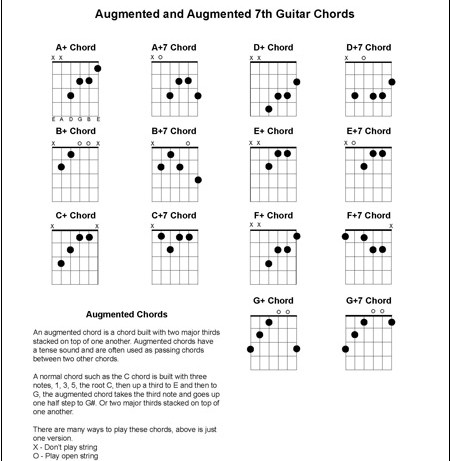 g augmented triad -G augmented triad bass clef">
g augmented triad -G augmented triad bass clef"> 

Augmented Triads And Seventh Chords Colorado Music Academy Blog


Augmented Chord Basic Chord Piano Lessons For Beginners
Major Triads, Minor Triads, Diminished Triads, Augmented Triads Major and Minor Triads Listen to the difference between a triad built on C (CEG) and one built on A (ACE) The first triad sounds positive/happy (this is a major triad), whilst the 2nd one sounds negative/sad (this is a minor triad)Gsharp augmented chord This step shows the Gsharp augmented triad chord in root position on the piano, treble clef and bass clef The Gsharp augmented chord contains 3 notes G#, B#, D## The chord spelling / formula relative to the G# major scale is 1 3 #5 Gsharp augmented chord note namesThe Augmented Triads (Augmented Chords) Augmented triads (also referred to as augmented chords) are constructed with a major third and an augmented fifth from the root An augmented fifth is a half step larger than a perfect fifth C – E – G♯ are the notes of C augmented chord
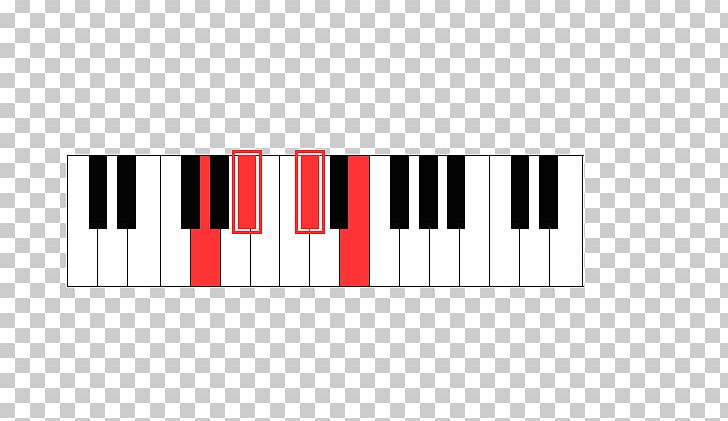 g augmented triad -G augmented triad bass clef">
g augmented triad -G augmented triad bass clef"> 

Digital Piano Diminished Triad Guitar Chord Augmented Triad Png Clipart 6 B 7 G Augmented Seventh
 g augmented triad -G augmented triad bass clef">
g augmented triad -G augmented triad bass clef"> 

Augmented Triad 10 Weeks Of Solfa Program Video 11a Youtube
How would you alter this chord to create a G augmented triad?In this etude I use a triad pair combination to move through the secondary and upper partial harmony of the chords Look at the example below For each major chord there is a major triad formed from the 5th degree of the scale (G Major in the first measure), and for each dominant chord there is an augmented triad formed from the 2nd degree ofThe augmented triad has the augmented fifth interval as its intervallic component, and studies have shown that all augmented and diminished triads sound harsh and unpleasant Due to the fact that the augmented triad is made up of an augmented interval, it sounds unstable, and has the tendency to move to a stable interval when played
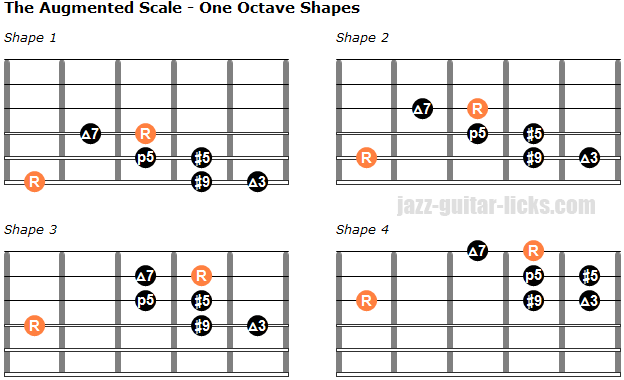 g augmented triad -G augmented triad bass clef">
g augmented triad -G augmented triad bass clef"> 

The Augmented Scale Guitar Lesson With Positions And Licks
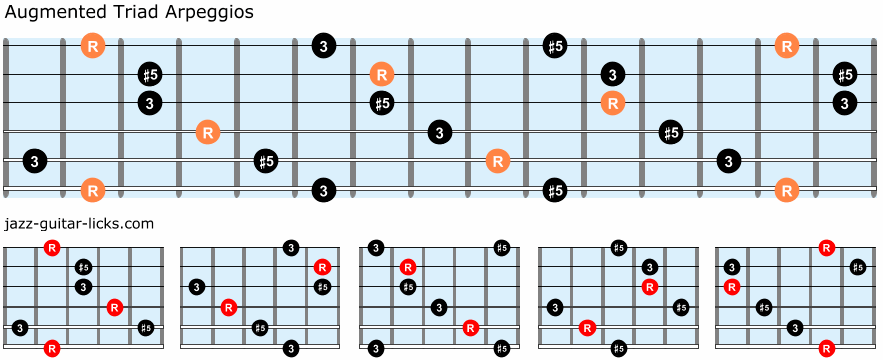 g augmented triad -G augmented triad bass clef">
g augmented triad -G augmented triad bass clef"> 

Triad Arpeggios Guitar Lesson With Tabs And Shapes
Listen to a G augmented chord and a G diminished chord Example 2 Notice that you can't avoid double sharps or double flats by writing the note on a different space or line;Building augmented Triads An augmented chord is a major triad with a raised 5th So a normal C major CEG becomes the augmented or raised CEG# Structure Root, Major Third, Augmented Fifth 1 b2 2 b3 3 4 b5 5 #5 6 b7 7 8 This triad can be notated as C augmented, CThe notated shorthand symbols for the Augmented Triad is _____ Dim or () are the signs for a _____ triad Maj or M are shorthand for a _____ triad IV Triad Inversions In the following examples, label the triads as Root Position, Ist Inversion or 2nd Inversion Download (PDF, 151KB) In Closing, This Music Theory Worksheet – Triads, is the
 g augmented triad -G augmented triad bass clef">
g augmented triad -G augmented triad bass clef"> 

Raise The Fifth Listening For Augmented Triads Musical U


Week 2 The Augmented Triad Cheat Sheet Hear And Play Music Learning Center
Augmented chords have the unique distinction of not appearing when a major scale is harmonised This means that when you stack alternate notes from a major scale on top of each other to form triads, you end up with major triads (C, F, G in the case of C major), minor triads (Dm, Em, Am) and even a diminished triad (im), but never an augmentedAnother interesting note about augmented triads is that if there is 1 augmented triad in a scale's harmonization, there are automatically 2 more!A diminished triad has a minor third and diminished fifth above the root while an augmented triad has a major third and augmented fifth above the root Of the four triad qualities, augmented triads are outliers since they cannot be constructed using only diatonic pitches and will therefore always require at least one accidental
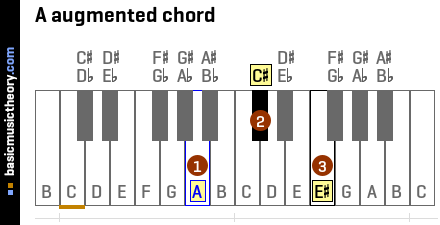 g augmented triad -G augmented triad bass clef">
g augmented triad -G augmented triad bass clef"> 

Basicmusictheory Com A Augmented Triad Chord
 g augmented triad -G augmented triad bass clef">
g augmented triad -G augmented triad bass clef"> 

Raise The Fifth Listening For Augmented Triads Musical U
C Augmented triad So, a C Maj chord is C – E – G, and an C Aug chord is C – E – G# This is true for any Major triad an Augmented triad is simply the major triad with the last note – the 5th of the chord – raised by a semitone (halfstep) For example, to make a D augmented triad we take the major triad (D – F# – A) ⇨ andMajor Triads, Minor Triads, Diminished Triads, Augmented Triads Major and Minor Triads Listen to the difference between a triad built on C (CEG) and one built on A (ACE) The first triad sounds positive/happy (this is a major triad), whilst the 2nd one sounds negative/sad (this is a minor triad)C#, E, G ?


Augmented Chord Basic Chord Piano Lessons For Beginners
 g augmented triad -G augmented triad bass clef">
g augmented triad -G augmented triad bass clef"> 

Augmented Triad Arpeggio All Keys
So, if we again look at this triad starting on C, we will end up with (CEG#—as opposed to CEG in our major triad)Last time, I introduced the augmented chord, which is a major triad with a raised, or 'sharped,' fifth spelled 1, 3, #5 and explained its theoretical origin, which is, it's the third diatonic triad of both the harmonic minor and melodic minor scalesI also demonstrated how the augmented chord can be used to intensify a Vi resolution in a minor keyHow would you spell an augmented triad above this pitch?


Gaug Chord Position Variations Guitar Chords World
 g augmented triad -G augmented triad bass clef">
g augmented triad -G augmented triad bass clef"> 

Raise The Fifth Listening For Augmented Triads Musicality World
Example The C Minor triad is made up of the notes C, Eb and G Augmented Triad Formula 1 3 #5 Think of 'Augmented' as meaning 'even more major than major' You take the Major triad (1, 3, 5) and stretch it by sharping the 5thG augmented chord This step shows the G augmented triad chord in root position on the piano, treble clef and bass clef The G augmented chord contains 3 notes G, B, D# The chord spelling / formula relative to the G major scale is 1 3 #5 G augmented chord note names Note no Note interval Spelling / formulaIt will often show up on a dominant 7th chord For instance, you can play this arpeggio based on the root of the V7 in a blues So if you're playing a C blues, when the G7 comes, you can play G augmented arpeggio for an interesting sound Now, the augmented triad is what's called a symmetrical structure
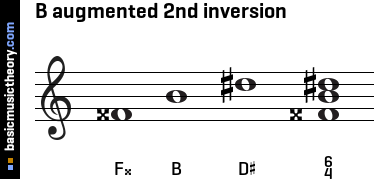 g augmented triad -G augmented triad bass clef">
g augmented triad -G augmented triad bass clef"> 

Basicmusictheory Com B Augmented Triad Chord
 g augmented triad -G augmented triad bass clef">
g augmented triad -G augmented triad bass clef"> 

The Augmented Scale Guitar Lesson With Positions And Licks
Raise the fifth How would you spell a diminished triad above this pitch?The chord is too balanced, which makes the ear crave a note or chord that can resolve it, often a major chordThe four types of triads augmented, major, minor, and diminished, with the sizes of thirds notated as M3 (major) or m3 (minor) Though the different C triads are composed of different pitches, what they each have in common are the note names C E G;
 g augmented triad -G augmented triad bass clef">
g augmented triad -G augmented triad bass clef"> 

Augmented Fifth Wikipedia
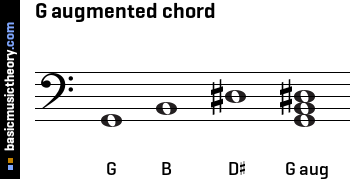 g augmented triad -G augmented triad bass clef">
g augmented triad -G augmented triad bass clef"> 

Basicmusictheory Com G Augmented Triad Chord
An augmented triad is essentially a major chord with a raised fifth So, for example, an augmented C chord, or C, is CEG# Perhaps the example that best shows off the dramatic possibilities of an augmented chord is the Beatles' "Oh!You just have to alter the accidentals in order to arrive at the correct notes for each triadAs is the case with most formulae in music theoryThe calculator could not be displayed because JavaScript is disabled
 g augmented triad -G augmented triad bass clef">
g augmented triad -G augmented triad bass clef"> 

Maurice Ravel And Augmented Chords Musikinesis
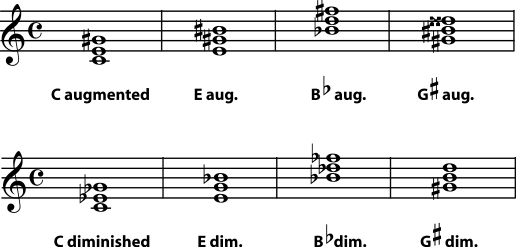 g augmented triad -G augmented triad bass clef">
g augmented triad -G augmented triad bass clef"> 

5 2 Naming Triads
, D, F# How would you spell a major triad above this pitch?• Augmented Triads Now let's look at each type of triad and the formulas to construct them Major Triads Here are the major triads for C, G & D In the first bar we have a C major triad If we play the C major scale and take the 1st, 3rd and 5th notes of the scale we are left with a C major triad In the second bar we have a G major triadThe resultant V 7 / #5 consists of an augmented triad (G, B, D #) with a minor seventh above the root (F) This chord resolves very similarly to the augmented triads mentioned above in the first part of this chapter the augmented fifth resolves upward by semitone to the third of the chord whose root is a fifth below
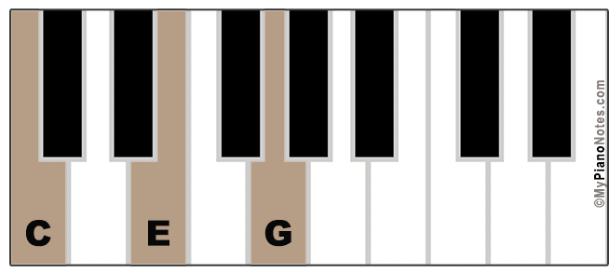 g augmented triad -G augmented triad bass clef">
g augmented triad -G augmented triad bass clef"> 

Chords In Key Of E Minor All Triads Extensions Piano Examples
 g augmented triad -G augmented triad bass clef">
g augmented triad -G augmented triad bass clef"> 

G Augmented Guitar Chord Diagrams
An Augmented Triad = Root 3rd raised 5th Here's what they look like on the staff (The symbol for an augmented chord is a "" sign) CHORD SYMBOL DEFINITION A augmented chord appears in lead sheets as any of the following chord symbols C C5 Caug And here's what they look like on the keyboardPiano Lesson On Augmented Chords Augmented Triads Basicmusictheory Com G Sharp Augmented Triad ChordD augmented E ♭ augmented E augmented F augmented G ♭ augmented G augmented A ♭ augmented A augmented B ♭ augmented B augmented * The use of G instead of F ♯♯ is regretted, due to the limitations of this graphic tool Remember, the base letters should never change so if B major has an "F#," then B augmented has an "F##" (but we're using G here, informally)
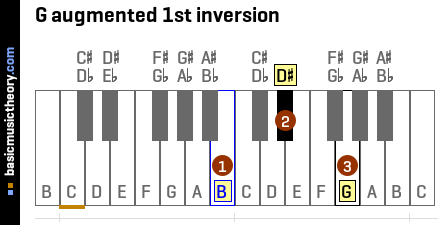 g augmented triad -G augmented triad bass clef">
g augmented triad -G augmented triad bass clef"> 

Basicmusictheory Com G Augmented Triad Chord
 g augmented triad -G augmented triad bass clef">
g augmented triad -G augmented triad bass clef"> 

Augmented Triad In Pathetique Sonata How Does It Function Music Practice Theory Stack Exchange
A C augmented triad (C) features the note C, the note E, and the note G♯ The fifth in this augmented chord is a half step higher than the fifth in the major triad What Are Augmented Seventh Chords?G Augmented triad arpeggio For C ocarina G ocarina (see also G, all scales and Augmented triad arpeggio, all keys) Exercise 1 Try this either tongued or with the slurs as marked Exercise 2 Upper mordents Use alternative fingerings if that helps Exercise 3 Inverted mordents Use alternative fingerings if that helps Exercise 4 TurnsThe formula for an augmented triad Formula Root3rd#5 We are going to use the key of G for our examples, so using this formula, the notes in a G augmented triad would be GBD# Let's take a look at what an augmented triad looks like notated in root position, 1st inversion and 2nd inversion
:max_bytes(150000):strip_icc()/G-augmented-chord-piano-56f565543df78c7841895f43.png) g augmented triad -G augmented triad bass clef">
g augmented triad -G augmented triad bass clef"> 

Augmented Piano Triads
 g augmented triad -G augmented triad bass clef">
g augmented triad -G augmented triad bass clef"> 

Triads Music Theory Academy
You just have to alter the accidentals in order to arrive at the correct notes for each triadAs is the case with most formulae in music theoryIn this etude I use a triad pair combination to move through the secondary and upper partial harmony of the chords Look at the example below For each major chord there is a major triad formed from the 5th degree of the scale (G Major in the first measure), and for each dominant chord there is an augmented triad formed from the 2nd degree ofIt will often show up on a dominant 7th chord For instance, you can play this arpeggio based on the root of the V7 in a blues So if you're playing a C blues, when the G7 comes, you can play G augmented arpeggio for an interesting sound Now, the augmented triad is what's called a symmetrical structure
 g augmented triad -G augmented triad bass clef">
g augmented triad -G augmented triad bass clef"> 

Capybara Guitar Posts Facebook
 g augmented triad -G augmented triad bass clef">
g augmented triad -G augmented triad bass clef"> 

Raise The Fifth Listening For Augmented Triads Musicality World
Augmented triad arpeggio, all keys For C ocarina G ocarina (click on the score to view exercises for any scale) Oneoctave C Augmented triad arpeggio C Augmented triad arpeggio Csharp Augmented triad arpeggio D Augmented triad arpeggio Eflat Augmented triad arpeggio E Augmented triad arpeggio F Augmented triad arpeggioAugmented Chord In an augmented triad, the fifth or top of the three notes of the chord is sharpened (raised half a step) It is indicated by the symbol '' or 'aug' For example, the C triad in a major scale is formed by playing C (the root note), E (the third note), and G (the fifth note)
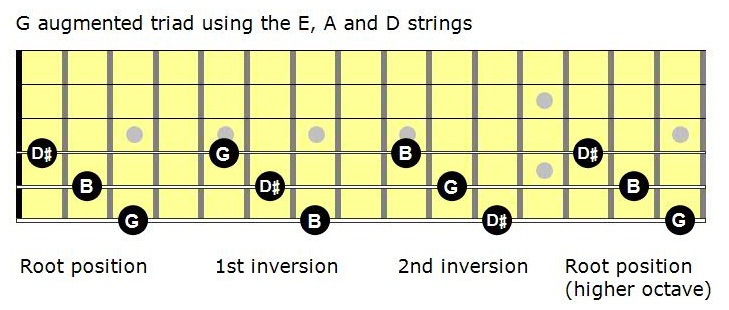 g augmented triad -G augmented triad bass clef">
g augmented triad -G augmented triad bass clef"> 

Mastering The Fretboard Augmented Triads Learn Jazz Standards
 g augmented triad -G augmented triad bass clef">
g augmented triad -G augmented triad bass clef"> 

Triads Music Theory Academy
 g augmented triad -G augmented triad bass clef">
g augmented triad -G augmented triad bass clef"> 

A Augmented Triad Guitar Fretboard Knowledge
 g augmented triad -G augmented triad bass clef">
g augmented triad -G augmented triad bass clef"> 

C Flat Piano Chords Triad Seventh Chords Piano Music Theory
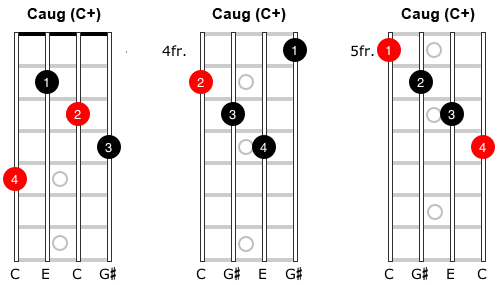 g augmented triad -G augmented triad bass clef">
g augmented triad -G augmented triad bass clef"> 

The Augmented Chord Music Theory For Mandolin Simplymandolin
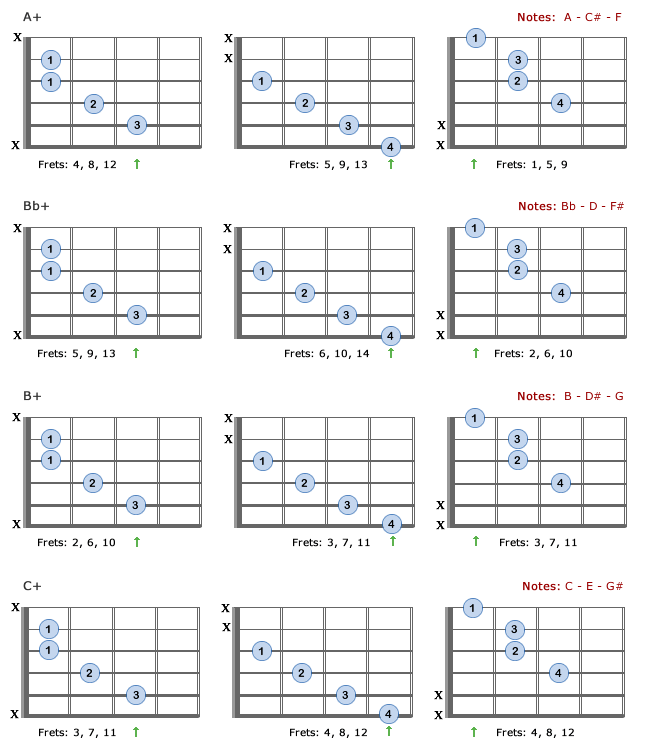 g augmented triad -G augmented triad bass clef">
g augmented triad -G augmented triad bass clef"> 

Augmented Chords For Guitar Theory Formulas Charts Bellandcomusic Com
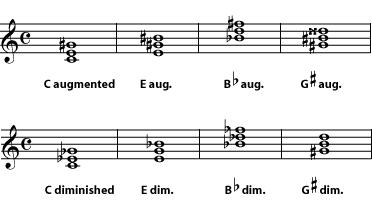 g augmented triad -G augmented triad bass clef">
g augmented triad -G augmented triad bass clef"> 

Naming Major Or Minor Triads In Music Theory Chord Inversions


Jazz Improvisation Scale Options For Augmented Triads Hear And Play Music Learning Center
 g augmented triad -G augmented triad bass clef">
g augmented triad -G augmented triad bass clef"> 

G Augmented Triad Lesson One Chord Practice Track 1 3 5 By One Chord Backing Tracks On Amazon Music Amazon Com
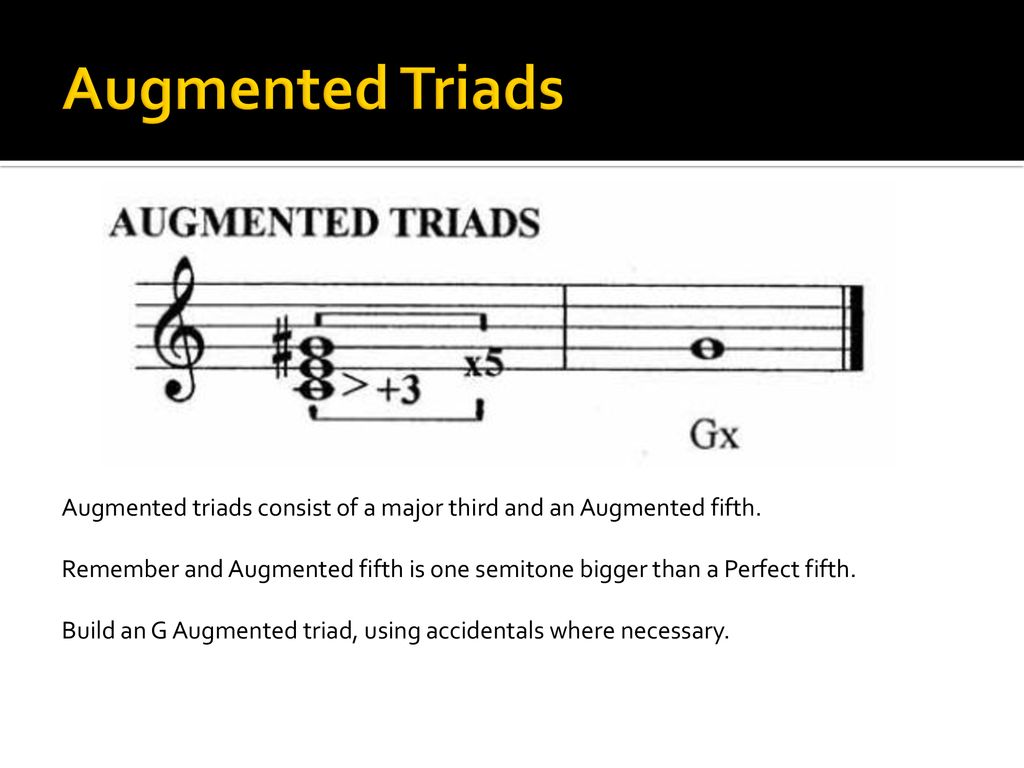 g augmented triad -G augmented triad bass clef">
g augmented triad -G augmented triad bass clef"> 

Lesson 9 Triads Ppt Download
 g augmented triad -G augmented triad bass clef">
g augmented triad -G augmented triad bass clef"> 

Visually Learn And Play Diminished And Augmented Triads On The Piano
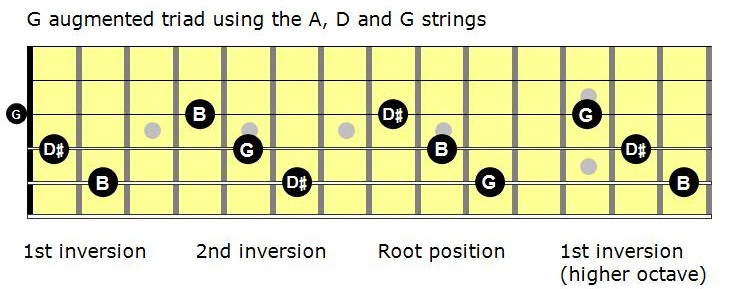 g augmented triad -G augmented triad bass clef">
g augmented triad -G augmented triad bass clef"> 

Mastering The Fretboard Augmented Triads Learn Jazz Standards
 g augmented triad -G augmented triad bass clef">
g augmented triad -G augmented triad bass clef"> 

6 Ways To Play G Augmented Chord By Chord Acoustic Guitar


Augmented And Diminished Chords Open Textbooks For Hong Kong
 g augmented triad -G augmented triad bass clef">
g augmented triad -G augmented triad bass clef"> 

Augmented Triad Arpeggio All Keys
 g augmented triad -G augmented triad bass clef">
g augmented triad -G augmented triad bass clef"> 

How To Use The Augmented Triad In A Jazz Blues Solo Jens Larsen
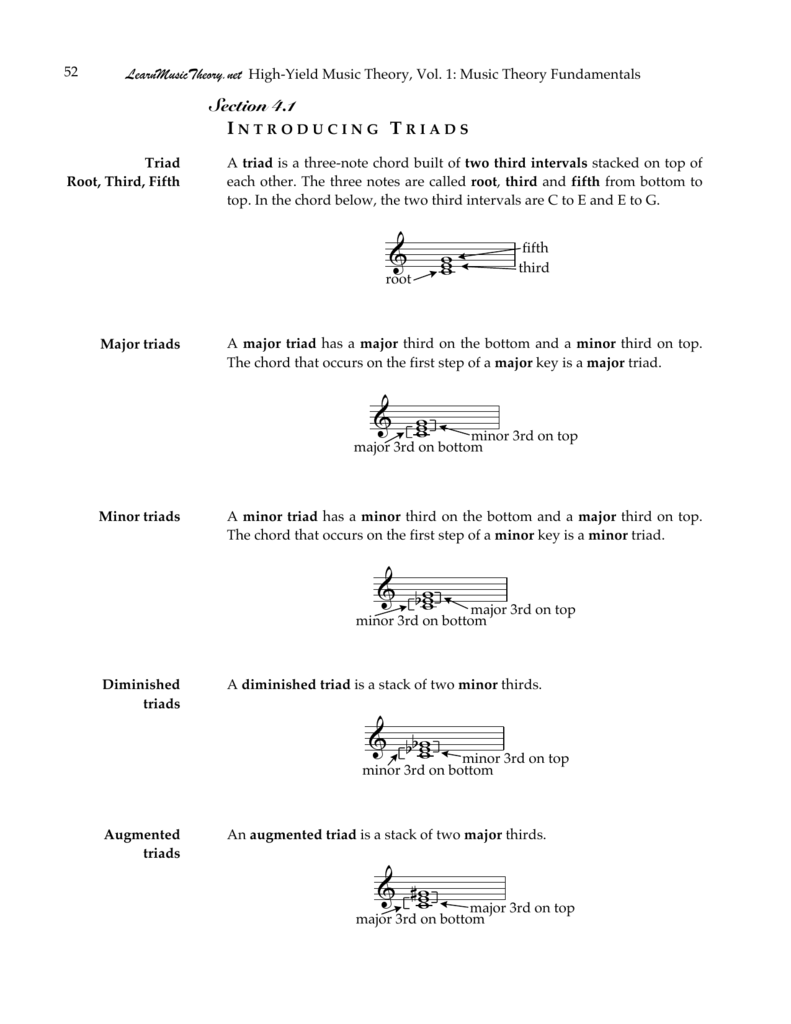 g augmented triad -G augmented triad bass clef">
g augmented triad -G augmented triad bass clef"> 

Introducing Triads Music Theory At Learnmusictheory Net
 g augmented triad -G augmented triad bass clef">
g augmented triad -G augmented triad bass clef"> 

12 Basic Triads Music Student 101
 g augmented triad -G augmented triad bass clef">
g augmented triad -G augmented triad bass clef"> 

12 Basic Triads In Theory Music Student 101
 g augmented triad -G augmented triad bass clef">
g augmented triad -G augmented triad bass clef"> 

Augmented Diminished Suspended Triads Ugly Bass Face


Augmented Guitar Chords Everything You Need To Know
 g augmented triad -G augmented triad bass clef">
g augmented triad -G augmented triad bass clef"> 

Neo Riemannian Triadic Progressions Open Music Theory


Augmented Guitar Chords Everything You Need To Know
 g augmented triad -G augmented triad bass clef">
g augmented triad -G augmented triad bass clef"> 

Augmented Triad Wikiwand
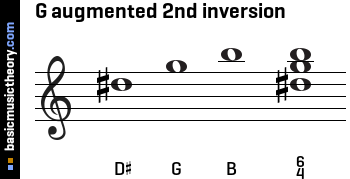 g augmented triad -G augmented triad bass clef">
g augmented triad -G augmented triad bass clef"> 

Basicmusictheory Com G Augmented Triad Chord
 g augmented triad -G augmented triad bass clef">
g augmented triad -G augmented triad bass clef"> 

Raise The Fifth Listening For Augmented Triads Musicality World
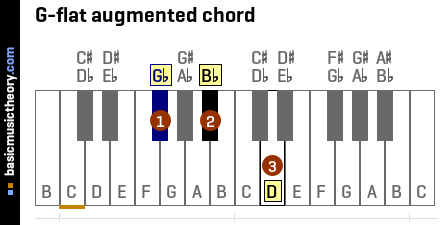 g augmented triad -G augmented triad bass clef">
g augmented triad -G augmented triad bass clef"> 

Basicmusictheory Com G Flat Augmented Triad Chord
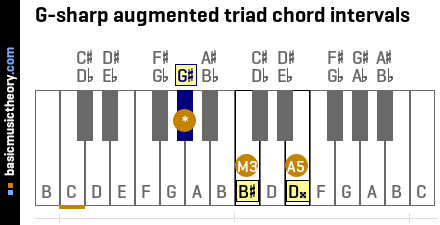 g augmented triad -G augmented triad bass clef">
g augmented triad -G augmented triad bass clef"> 

Basicmusictheory Com G Sharp Augmented Triad Chord
 g augmented triad -G augmented triad bass clef">
g augmented triad -G augmented triad bass clef"> 

Neo Riemannian Triadic Progressions Open Music Theory
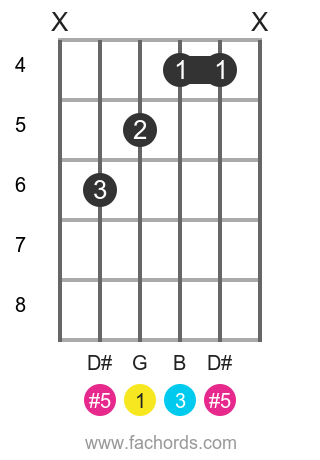 g augmented triad -G augmented triad bass clef">
g augmented triad -G augmented triad bass clef"> 

Gaug Guitar Chord Guitar Chords Chart


Triads And Seventh Chords Open Music Theory
 g augmented triad -G augmented triad bass clef">
g augmented triad -G augmented triad bass clef"> 

Music Secrets Of Chords
 g augmented triad -G augmented triad bass clef">
g augmented triad -G augmented triad bass clef"> 

Music Theory For Bass Guitar Bass Chords 3 Augmented Diminished Triads Talkingbass
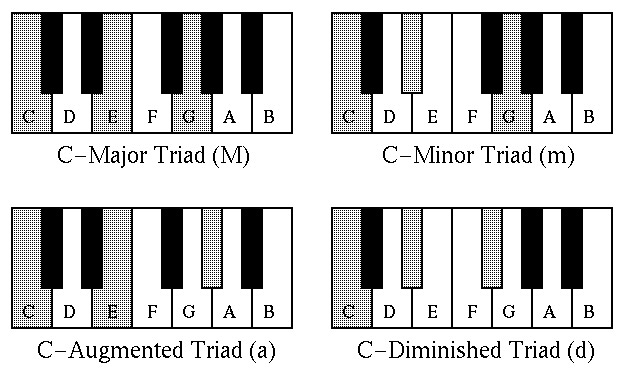 g augmented triad -G augmented triad bass clef">
g augmented triad -G augmented triad bass clef"> 

Augmented


Triads And Seventh Chords Open Music Theory
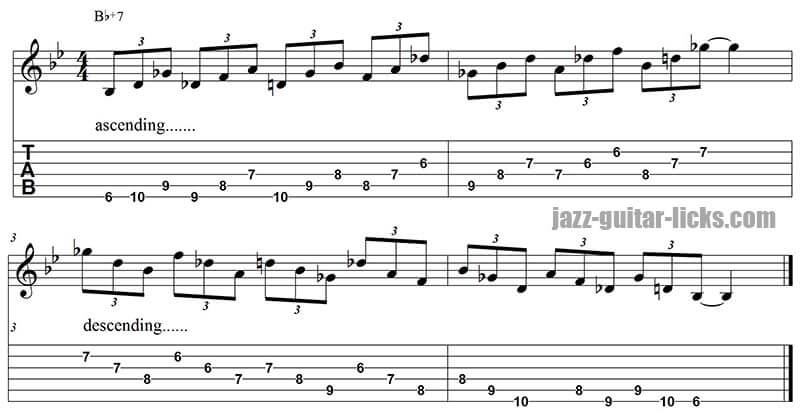 g augmented triad -G augmented triad bass clef">
g augmented triad -G augmented triad bass clef"> 

The Augmented Scale Guitar Lesson With Positions And Licks
 g augmented triad -G augmented triad bass clef">
g augmented triad -G augmented triad bass clef"> 

Scale 273 Augmented Triad
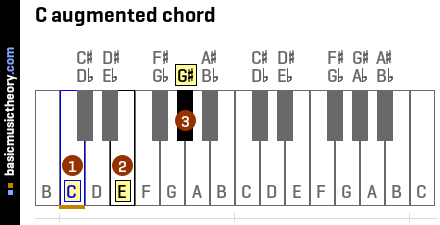 g augmented triad -G augmented triad bass clef">
g augmented triad -G augmented triad bass clef"> 

Basicmusictheory Com C Augmented Triad Chord
 g augmented triad -G augmented triad bass clef">
g augmented triad -G augmented triad bass clef"> 

Raise The Fifth Listening For Augmented Triads Musical U
 g augmented triad -G augmented triad bass clef">
g augmented triad -G augmented triad bass clef"> 

G Augmented Arpeggio Patterns And Fretboard Diagrams For Guitar


3 1 6 Musical Composition Digital Sound Music


Week 2 The Augmented Triad Cheat Sheet Hear And Play Music Learning Center
 g augmented triad -G augmented triad bass clef">
g augmented triad -G augmented triad bass clef"> 

What Is An Augmented Chord Hello Music Theory
 g augmented triad -G augmented triad bass clef">
g augmented triad -G augmented triad bass clef"> 

Augmented Triads Scored Changes
 g augmented triad -G augmented triad bass clef">
g augmented triad -G augmented triad bass clef"> 

G Augmented Chord
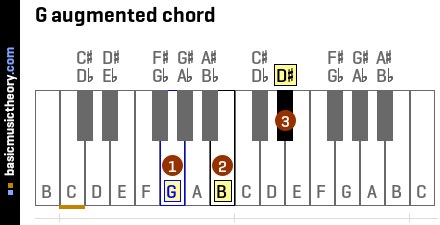 g augmented triad -G augmented triad bass clef">
g augmented triad -G augmented triad bass clef"> 

Basicmusictheory Com G Augmented Triad Chord
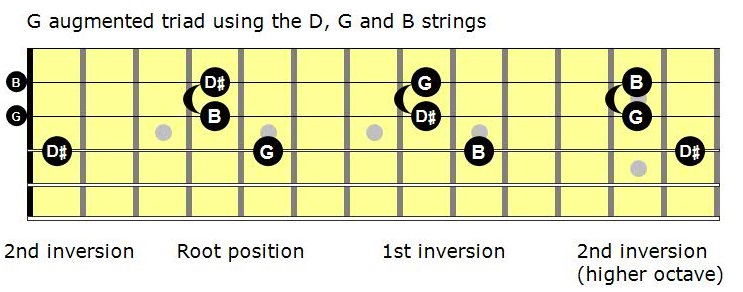 g augmented triad -G augmented triad bass clef">
g augmented triad -G augmented triad bass clef"> 

Mastering The Fretboard Augmented Triads Learn Jazz Standards
 g augmented triad -G augmented triad bass clef">
g augmented triad -G augmented triad bass clef"> 

6 Ways To Play G Augmented Chord By Chord Acoustic Guitar
 g augmented triad -G augmented triad bass clef">
g augmented triad -G augmented triad bass clef"> 

Visualizing Thirds The Nandi Method
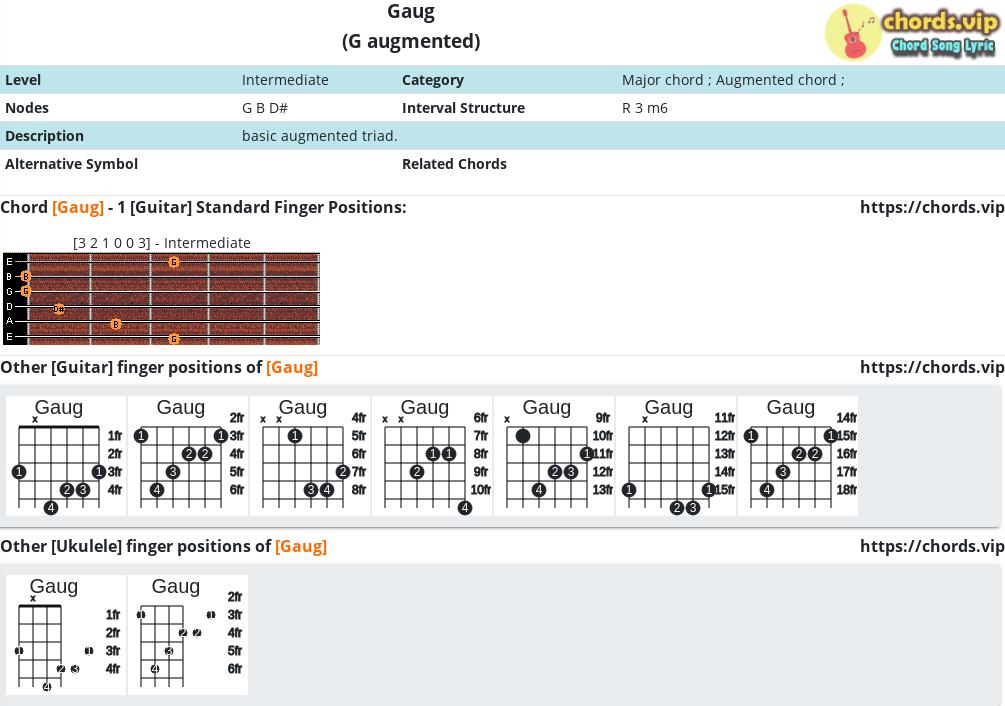 g augmented triad -G augmented triad bass clef">
g augmented triad -G augmented triad bass clef"> 

Chord Gaug G Augmented Composition And Fingers Guitar Ukulele Chords Vip
 g augmented triad -G augmented triad bass clef">
g augmented triad -G augmented triad bass clef"> 

How To Play G Augmented Mandolin Chords
 g augmented triad -G augmented triad bass clef">
g augmented triad -G augmented triad bass clef"> 

What Is A Music Chord How To Build Triads Seventh Chords Piano Music Theory
 g augmented triad -G augmented triad bass clef">
g augmented triad -G augmented triad bass clef"> 

Raise The Fifth Listening For Augmented Triads Musical U
 g augmented triad -G augmented triad bass clef">
g augmented triad -G augmented triad bass clef"> 

Mastering The Fretboard Augmented Triads Learn Jazz Standards
 g augmented triad -G augmented triad bass clef">
g augmented triad -G augmented triad bass clef"> 

Augmented Triad Arpeggio All Keys
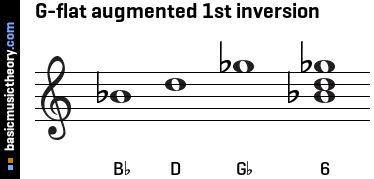 g augmented triad -G augmented triad bass clef">
g augmented triad -G augmented triad bass clef"> 

Basicmusictheory Com G Flat Augmented Triad Chord


Who Else Wants To Learn About The Augmented Scale Hear And Play Music Learning Center
 g augmented triad -G augmented triad bass clef">
g augmented triad -G augmented triad bass clef"> 

What Are Diminished And Augmented Triads



0 件のコメント:
コメントを投稿